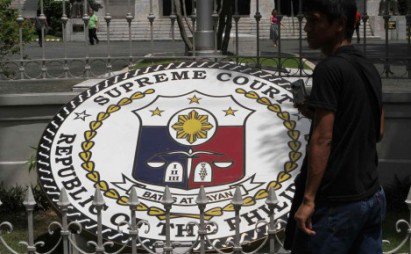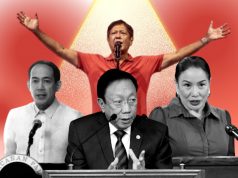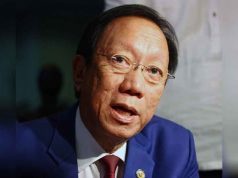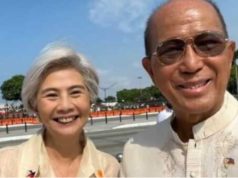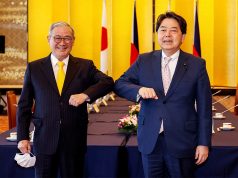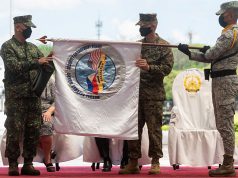MANILA, Philippines — The justices of the Supreme Court have been holding a closed-door “internal meeting” Thursday morning with Defense Secretary Delfin Lorenzana and Armed Forces chief Lieutenant General Eduardo Año, the administrator and implementor, respectively, of martial law in Mindanao.
Also at the meeting were lawyers of the both petitioners seeking to have Proclamation No. 216, through which Duterte placed Mindanao under martial law and suspended the privilege of the writ of habeas corpus, and the government.
Lawyer Theodore Te, spokesman of the high court, said he could not confirm if the closed-door meeting was already the executive session Solicitor General Jose Calida requested for Lorenzana and Año’s appearance at the oral arguments on the anti-martial law petitions.
But sources said it was, indeed, an executive and that Lorenzana and Año made presentations to the justices.
Meanwhile, one of the lawyers for anti-martial law petitioners said Calida’s admission Wednesday that there was not much difference between the president’s martial law and “calling out” powers went against the government’s position.
Lawyer Marlon Manuel said the admission that the call out powers, which allow the president to call out the armed forces to quell unlawful violence, are more or less similar to martial law powers means there is really no need to declare martial law.
During Wednesday’s hearing, the second day of the oral arguments, Calida was grilled by Chief Justice Maria Lourdes Sereno and Justice Antonio Carpio on the different between the president’s calling out and martial law powers.
Among his answer was that martial law powers are “calling out powers on steroids.”
Justice Teresita Leonardo-De Castro finally took it upon herself to explain the matter: “In the calling out powers, this is more military in nature. It allows only the President to call the Armed Forces to take military measures or to take military action against certain groups. But in the case of the Martial Law powers of the President, the AFP is not only to be engaged in combat operation, but the AFP is engaged in the general maintenance of peace and order.”
“That is why there is a requirement in the Constitution that there must be a need for public safety,” she said. “Which means that the AFP will be doing the function of ordinary peace officers in the community. So they will not only engage in military combat, which is what is called for in the power of the president to call the Armed Forces of the Philippines to suppress lawless violence, invasion, or rebellion.”
Manuel said Calida’s admission “will actually … go against the government’s position. Why? Because if there is no such difference then what can be done without martial will also be done with martial law, which goes into the absence of necessity for the imposition of martial law, which is a very important requirement of the Constitution.”
He also said that even suspending the privilege of the writ of habeas corpus was already a deprivation of constitutional rights, thus, “it is not safe to say that with martial law no rights can be affected. The constitution has put limitations but still recognized that martial law has a potential to be a danger for citizens’ rights.”
He also stressed that the petition they filed “has nothing to do with our interests, political affiliation,” or how they voted in the last election.
“What we are asking here is for the Constitution to be followed” he added.
WATCH THIS VIDEO REPORT BY NEWS5’S JV ARCENA:

